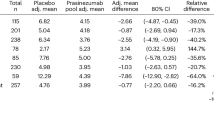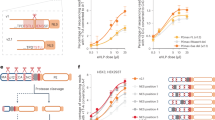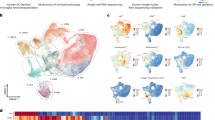Abstract
An adeno-associated virus (AAV) vector, expressing genes for human tyrosine hydroxylase (TH) and aromatic amino acid decarboxylase (AADC), demonstrated significantly increased production of dopamine in 293 (human embryonic kidney) cells. This bicistronic vector was used to transduce striatal cells of six asymptomatic but dopamine-depleted monkeys which had been treated with the neurotoxin MPTP. Striatal cells were immunoreactive for the vector-encoded TH after stereotactic injection for periods up to 134 days, with biochemical effects consistent with dopamine biosynthetic enzyme expression. A subsequent experiment was carried out in six more severely depleted and parkinsonian monkeys. Several TH/aadc-treated monkeys showed elevated levels of dopamine near injection tracts after 2.5 months. Two monkeys that received a β-galactosidase expressing vector showed no change in striatal dopamine. Behavioral changes could not be statistically related to the vector treatment groups. Toxicity was limited to transient fever in several animals and severe hyperactivity in one animal in the first days after injection with no associated histological evidence of inflammation. This study shows the successful transfection of primate neurons over a period up to 2.5 months with suggestive evidence of biochemical phenotypic effects and without significant toxicity. While supporting the idea of an in vivo gene therapy for Parkinson’s disease, more consistent and longer lasting biochemical and behavioral effects will be necessary to establish the feasibility of this approach in a primate model of parkinsonism.
This is a preview of subscription content, access via your institution
Access options
Subscribe to this journal
Receive 12 print issues and online access
$259.00 per year
only $21.58 per issue
Buy this article
- Purchase on Springer Link
- Instant access to full article PDF
Prices may be subject to local taxes which are calculated during checkout
Similar content being viewed by others
Author information
Authors and Affiliations
Rights and permissions
About this article
Cite this article
During, M., Samulski, R., Elsworth, J. et al. In vivo expression of therapeutic human genes for dopamine production in the caudates of MPTP-treated monkeys using an AAV vector. Gene Ther 5, 820–827 (1998). https://doi.org/10.1038/sj.gt.3300650
Received:
Accepted:
Published:
Issue Date:
DOI: https://doi.org/10.1038/sj.gt.3300650
Keywords
This article is cited by
-
Comparison of Fetal Mesencephalic Grafts, AAV-delivered GDNF, and Both Combined in an MPTP-induced Nonhuman Primate Parkinson’s Model
Molecular Therapy (2013)
-
Birth of a New Therapeutic Platform: 47 Years of Adeno-associated Virus Biology From Virus Discovery to Licensed Gene Therapy
Molecular Therapy (2013)
-
The anti-tumor effect and increased tregs infiltration mediated by rAAV-SLC vector
Molecular Biology Reports (2013)
-
Lack of humoral immune response to the tetracycline (Tet) activator in rats injected intracranially with Tet-off rAAV vectors
Gene Therapy (2010)
-
Tailoring the AAV vector capsid for gene therapy
Gene Therapy (2009)



